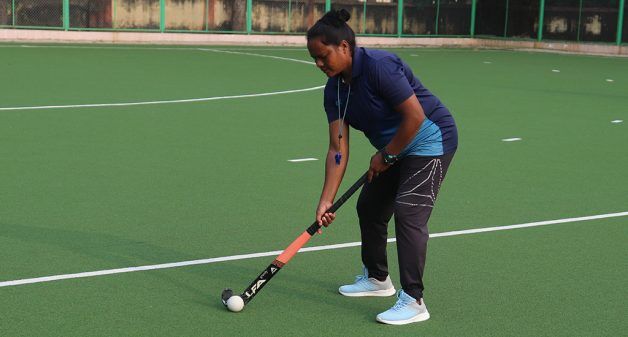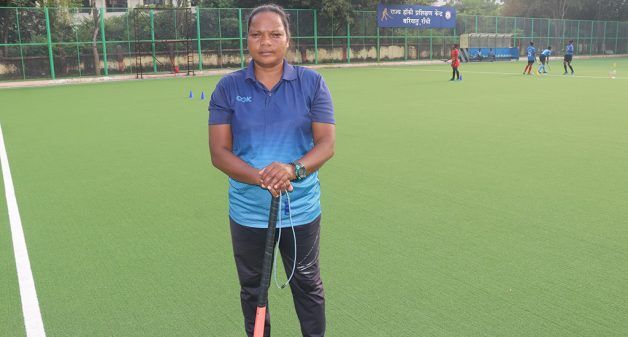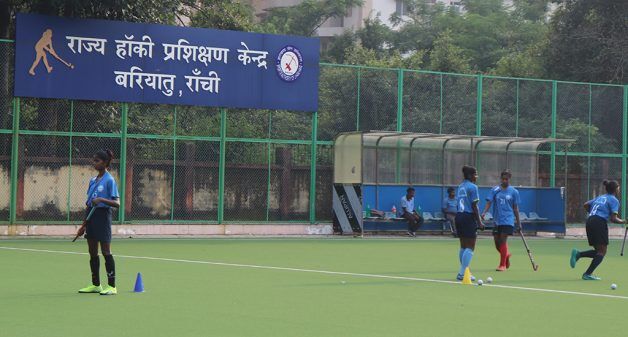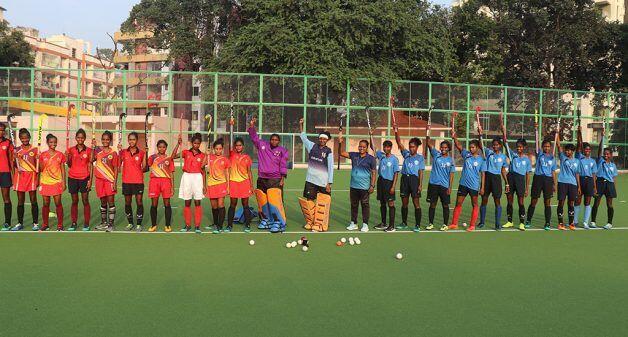I never dreamed hockey would get me a job.
Back then, we had no idea that Indian women’s hockey would come this far during our lifetime. It’s a huge accomplishment for a rural girl, like me, to have come this far.
After India’s outstanding performance at the Olympics some families who weren’t supportive earlier want their children to learn hockey now.
Awareness has improved, but not the financial condition of the girls who train here. One of the girls, Monika Nag, was so overjoyed when her father gifted her a stick.
I’m sure my girls will one day represent India at international levels.
Maybe even the Olympics.
Reporting by Deepanwita Gita Niyogi, a Delhi-based journalist.
Photos by Teerth Nath Akash.




